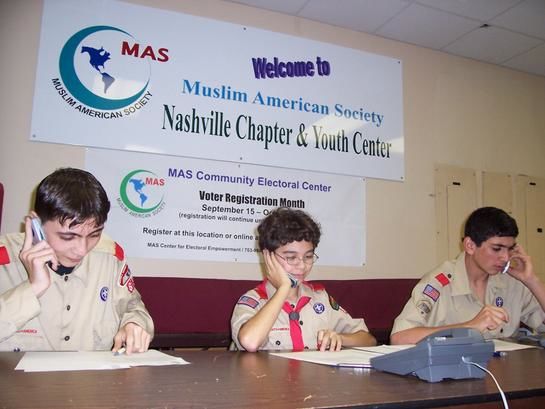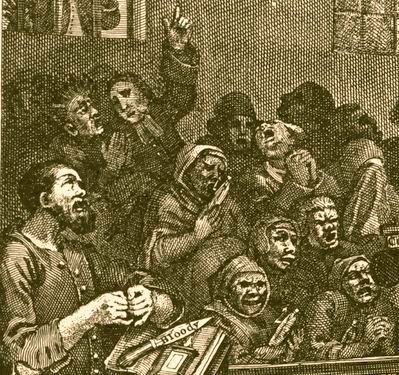A year ago, in July and August of 2013, we were in the early stages of the controversy over Diana West’s book American Betrayal. Ms. West was being subjected by a series of vitriolic attacks by Ronald Radosh, David Horowitz, Conrad Black, and other major luminaries. She had few prominent defenders, and most of those who spoke positively about her book did so after a significant delay, and then even hedged their mild support with caveats and criticisms.
The “Barroom Brawl” continued for another four or five months, and then died out last winter.
Or did it?
Three weeks ago a writer named Jeff Lipkes published a 12,000-word three-part account of the controversy over American Betrayal at American Thinker (Part 1, Part 2, Part 3; Diana West’s email exchange with the editor is here). Mr. Lipkes’ work was yet another attempt by the neoconservative elite to cement Ms. West’s position as a “conspiracist” and “right-wing loopy” from the point of view of the bien-pensants of the “conservative” establishment.
After Part 3 was published, Diana West submitted a letter of response. The editor of American Thinker, J.R. Dunn, insisted that her letter had to meet his requirements in order to be published at AT, and that she must accept his editorial revisions if she wanted it to appear. This was an unusual — if not unprecedented — set of restrictions imposed upon an author who wanted to publish a response to a piece that had attacked her.
J.R. Nyquist has written an extensive account of the American Thinker episode, and I have excerpted major portions of it below. But before we get to that, I’d like readers to think about the larger implications of the ongoing efforts to suppress and discredit Diana West.
Here we are, more than a year after Ronald Radosh and David Horowitz began their campaign to “take down” the book that “should not have been written”. Dozens and dozens of reviews, articles and opinion pieces have been written attacking American Betrayal, many of them by people who have never read the book. Diana West has been shut out of most publications, unable to defend herself in a major venue against the manifold falsehoods, misrepresentations, and name-calling directed at her.
But that’s not enough. One year later, a representative of the establishment’s point of view was assigned the job of writing 12,000 words against her, and she was denied the opportunity to publish an unedited response in the same outlet.
That’s some planet, that Planet X.
What is it about American Betrayal that warrants such an extended and determined effort to suppress it?
Below are excerpts from what J.R. Nyquist has to say on the topic in the second part of “Further Reflections on Diana West’s Critics” :
In the controversy over American Betrayal I am remiss in one respect. I never wrote a proper review of the book. Instead I wrote two versions of a review, and both were rejected by editors. For this I am grateful because in truth I had not invested the time required to properly do the job. I did not fully appreciate the impact of the campaign against American Betrayal, or how effective that campaign had been. For those who have not read the book, it is about the Communist infiltration of the U.S. Government, and the influencing of U.S. policy during the critical years of World War II and its aftermath. The facts reviewed in the book are not entirely new. What was original was the way in which these facts were presented; that is, in order that we might see the big picture with greater clarity. This is Diana West’s special achievement.
 This is a book with far-reaching implications. These implications, of course, have yet to be mapped out. For example, we must assume that Soviet agents were not only at work in Washington during World War II. They were also at work in Chungking, Tokyo, Berlin, London and Paris. If the U.S. Government had Communist moles, every other government probably had them. As if to prove my point, Pulitzer Prize-winning journalist Louis Kilzer wrote a book titled Hitler’s Traitor : Martin Bormann and the Defeat of the Reich
This is a book with far-reaching implications. These implications, of course, have yet to be mapped out. For example, we must assume that Soviet agents were not only at work in Washington during World War II. They were also at work in Chungking, Tokyo, Berlin, London and Paris. If the U.S. Government had Communist moles, every other government probably had them. As if to prove my point, Pulitzer Prize-winning journalist Louis Kilzer wrote a book titled Hitler’s Traitor : Martin Bormann and the Defeat of the Reich (which alleges that Bormann was Stalin’s agent). Here we discover that it wasn’t just a case of Harry Hopkins manipulating Roosevelt. Hitler was manipulated by Bormann, and probably by others we’ll never know about. Many books remain to be written; for example, regarding how Churchill was manipulated, and also de Gaulle. Consider a 1997 article titled How a Soviet mole united Tito and Churchill. Consider, as well, the situation of Charles de Gaulle, as described in the Encyclopedia of Cold War Espionage, Spies, and Secret Operations: “In the late 1950s, and especially since the defection of Anatoli Golitsyn in 1961, strong suspicion surrounded the SDECE of harboring Soviet moles who were close to President Charles de Gaulle after he returned to power in 1958.”
(which alleges that Bormann was Stalin’s agent). Here we discover that it wasn’t just a case of Harry Hopkins manipulating Roosevelt. Hitler was manipulated by Bormann, and probably by others we’ll never know about. Many books remain to be written; for example, regarding how Churchill was manipulated, and also de Gaulle. Consider a 1997 article titled How a Soviet mole united Tito and Churchill. Consider, as well, the situation of Charles de Gaulle, as described in the Encyclopedia of Cold War Espionage, Spies, and Secret Operations: “In the late 1950s, and especially since the defection of Anatoli Golitsyn in 1961, strong suspicion surrounded the SDECE of harboring Soviet moles who were close to President Charles de Gaulle after he returned to power in 1958.”
Then there was the Tokyo spy ring, of course. Within that organization, Soviet spy Richard Sorge was credited with saving the Soviet Union in 1941. At the Spy Museum website we read, “The spies [of the Tokyo ring] pursued relationships with senior Japanese politicians, garnering information about Japanese foreign policy.” But as we know, Soviet spies do not merely garner information. Their primary work must have been to influence Japanese policy — as Moscow’s moles in Washington worked to influence American policy. Why did Tokyo fail to make peace with China and solidify a friendship with the United States? It is not an idle question when so many leading Japanese politicians thought the proper strategic direction for Japan was against the Soviet Union. In reminding us that Soviet agents are not merely spies, Mrs. West has laid bare the tragedy of a war that need not have been so costly. And this is why she has been so savagely attacked. This is why her work is called into question.
Everyone knows the role that Hitler and the Japanese militarists played in bringing about World War II. What about the role of Stalin and his agents? With the exception of Viktor Suvorov’s The Chief Culprit and Icebreaker, no major study has appeared exploring the extent to which Moscow may have connived at the crises of 1938 and 1939. On the other hand, we do have John Koster’s Operation Snow, which shows how Soviet spies succeeded in pushing Japan and the United States closer to war in 1941. Is it thinkable? Certainly, it takes us beyond the “accepted history.” But is the idea so implausible that future authors must be struck from civilized discourse as “conspiracy theorists”? Or are such ruminations consistent with what we know about Soviet active measures (i.e., disinformation). Ask yourself the question: Why is someone attacked, going on a year, for discussing the strategic implications of Soviet penetration of the Roosevelt administration? Unless Moscow is recycling Russia’s old strategies from World War II, with an eye to a repeat performance, why would anyone care?
When the second version of my review of Mrs. West’s book was rejected by a reputable conservative publisher, I assumed it was due to the inadequacy of my own writing, so I asked the publisher for a chance to rewrite the review, and give it a more scholarly tone. The publisher was extremely kind, and wrote a reply which was nonetheless troubling. He wrote to dissuade me from any such attempt. He admitted that America was penetrated by the Soviets during World War II. But writing about this went against “accepted history.” In this matter, Mrs. West should not have been so bold. “That our policy-making apparatus was compromised is also clear,” he explained. But “this is so jarring to the lay reader that” the thesis requires a substantial backing up. I was astonished at this. What about Mrs. West’s 900 plus endnotes? Well, it seems that endnotes don’t count if a journalist compiles them. What I want to know is, when and how did we end up in a Kafka novel? Oh yes, we live in a strange world indeed; for if I say the sky is blue, it can only be credited if I am a meteorologist! If “accepted history” is made of such stuff, then “accepted history” is for dolts. This also explains why Radosh’s unscholarly, error-filled, screeds against Mrs. West receive a pass and are given credibility; that is, because he is a historian.
I had assumed that conservatives and anti-Communists would instinctively rally to American Betrayal. In large degree, this did not happen. We see, above, why it did not happen. Of course, a few great names rose to Mrs. West’s defense — like Vladimir Bukovsky and Stanton Evans. We know that both are courageous men. It would’ve been out of character if they had not defended her. Sad to say, this fortitude did not rub off on the “larger” conservative “movement.” It speaks ill of conservatism overall that Radosh’s self-discrediting attacks on Mrs. West were not dismissed out of hand. Instead, these attacks were taken as a warning, translated as follows: “Shut up or we’ll drag your name through the mud too.” And so we find that American conservatives are easily intimidated. Against all reason, Radosh’s bungling attacks on American Betrayal sent a chill through the “movement.” The implication, of course, is that the conservative movement is worthless.
As the publisher had written to me, “I believe Diana is substantially right….” But that does not matter. Someone else now dictates whether a conservative rejects or accepts a book review. What we believe, what is substantially right, must be left to someone with “an authoritative voice.” And how does the would-be ventriloquist of conservatism acquire this mythical status? Of course, no conservative possesses such a voice, so that the problem of departing from “accepted history”becomes insurmountable. We must stay with the Office of War Information, and praise our wartime alliance with Stalin. And we must wait for a ventriloquist from God-knows-where to tell us what nonsense is to follow the current nonsense.
But shouldn’t the decisive point have been that Mrs. West is “substantially right”? And therefore, how are we served by an “accepted history” that is substantially wrong? Shouldn’t this “history” be overthrown? And, further, how did we get saddled with such a history?
Or maybe we should ask how we got saddled with such “conservatives”?
Continue reading →
 The Libyan mujahideen of Ansar al-Sharia have declared an Islamic emirate in Benghazi, but forces loyal to the government deny that the jihad groups have control of the city. Meanwhile, intelligence services in the region are concerned that Islamic armed militias in Tripoli may have taken possession of ten civilian airplanes, and will use them for the purposes of jihad.
The Libyan mujahideen of Ansar al-Sharia have declared an Islamic emirate in Benghazi, but forces loyal to the government deny that the jihad groups have control of the city. Meanwhile, intelligence services in the region are concerned that Islamic armed militias in Tripoli may have taken possession of ten civilian airplanes, and will use them for the purposes of jihad.








